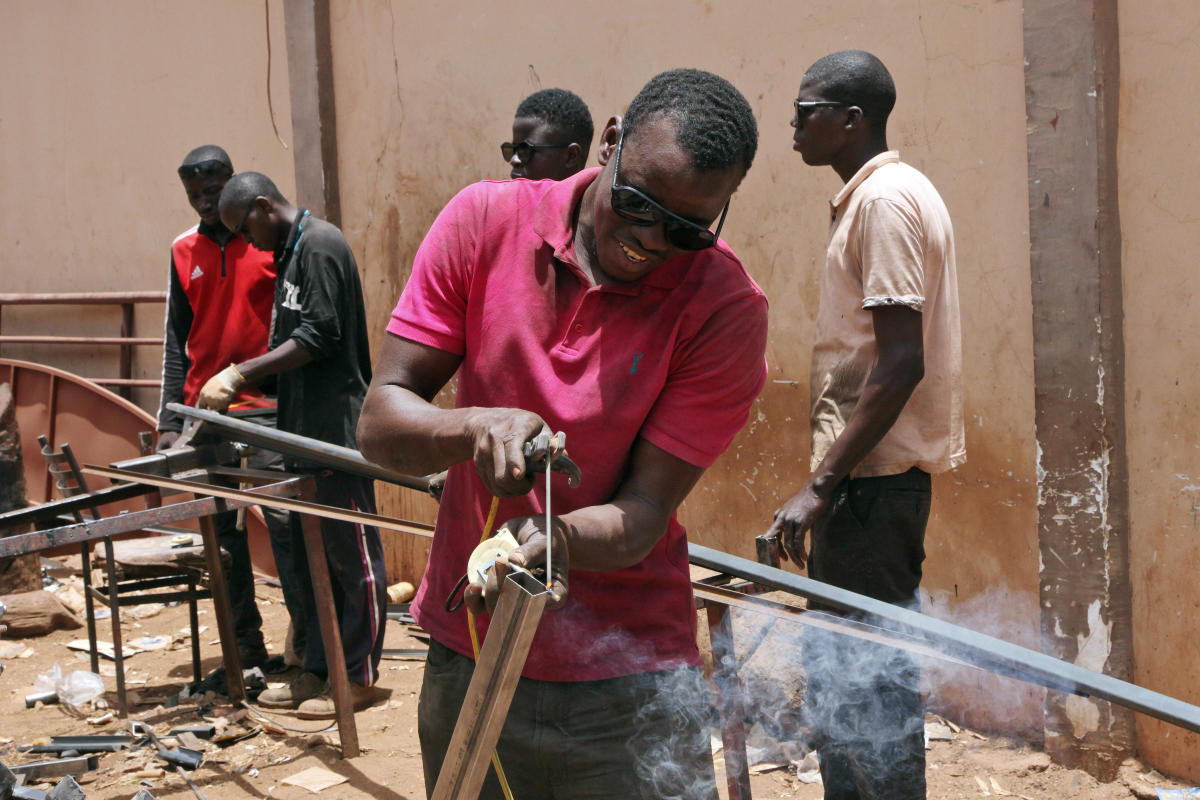BAMAKO, Mali (AP) — Street vendors in the Malian capital Bamako peddle water sachets, which are ubiquitous in this part of West Africa during the hottest months. This year, an unprecedented heat wave has led to a rise in deaths, experts say. They warn of more scorching weather conditions as the effects of climate change ravage the continent.
The heat wave began in late March, when many in this Muslim-majority country celebrated the Muslim holy month of Ramadan by fasting from dawn to dusk.
Temperatures in Bamako reached 44 degrees Celsius (111 Fahrenheit) on Thursday and forecasters say this will not ease off anytime soon.
The city’s Gabriel-Touré Hospital reported 102 deaths in the first four days of the month, compared with 130 deaths in all of April last year. It is unknown how many of the fatalities were due to the extreme weather, as such data cannot be made public under regulations imposed by the country’s military rulers.
Cheikh A Traoré, Mali’s director general for health, said significantly more elderly people had died during this period, although statistics were not available due to the measures.
Mali has experienced two coups since 2020, sparking a wave of political instability that has swept across West and Central Africa in recent years. In addition to the political problems, the country is also in the grip of a growing insurgency by militants linked to al-Qaeda and Islamic State.
The Red Cross Red Crescent Climate Center said a lack of data in Mali and other West African countries affected by this month’s heat wave made it impossible to know how many heat-related deaths there were, but estimated the death toll was likely in the hundreds walked. if not thousands.
The heat is also already endangering vulnerable children in Mali: 1 million children under the age of five were at risk of acute malnutrition by the end of 2023 due to prolonged violence, internal displacement and limited access to humanitarian aid, the World Food Program said. .
Professor Boubacar Togo, head of pediatrics at Gabriel-Touré, told The Associated Press that the hospital had six cases of meningitis in children in the past week, an unusually high number. He also added that there were many diseases with diarrhea as the main symptom. Togo has not elaborated or offered any specific data.
To protect children from the worst of the heat, Mali’s military rulers have shortened the school day to end before 1 p.m. instead of 5:30 p.m. during the heat wave. But on the streets of Bamako, workers say they have no choice but to go out and brave the extreme heat.
“Either I work and risk my health, or I stop working for most of the day and earn nothing,” says 25-year-old driver Amadou Coulibaly, who offers rides on his motorcycle for a small fee.
Due to the political instability, many foreign investors are leaving Mali. Constant power outages and fuel shortages have forced businesses to close, further exacerbating an already poor economic situation.
Despite the heat, 30-year-old welder Somaila Traoré worked in his workshop with a dozen employees and encouraged them to work faster.
“We have to get the job done before the power goes out,” he said.
An analysis published Thursday by the World Weather Attribution – an international team of scientists looking at how human-induced climate change is affecting extreme weather – said the latest heat wave in the Sahel, a region in sub-Saharan Africa that suffers from periodic droughts, is more than just a Malian record breaker.
“Our research found that the extreme temperatures in the region simply would not have been possible without human-induced warming,” said Clair Barnes, lead author and researcher at Imperial College London.
The researchers say climate change has made maximum temperatures in Burkina Faso and Mali 1.5 degrees Celsius (2.7 degrees Fahrenheit) warmer — something that might not have happened “if humans had not warmed the planet by burning fossil fuels.” ”
With continued warming temperatures, the trend would continue, with similar events likely occurring once every 20 years, the study said.
“This result is a warning to both the region and the world,” Barnes said. “Extreme heat can be incredibly dangerous and will become an increasing threat as the world continues to warm.”
___
Mureithi reported from Nairobi.
Read more about AP’s climate coverage at http://www.apnews.com/climate-and-environment






